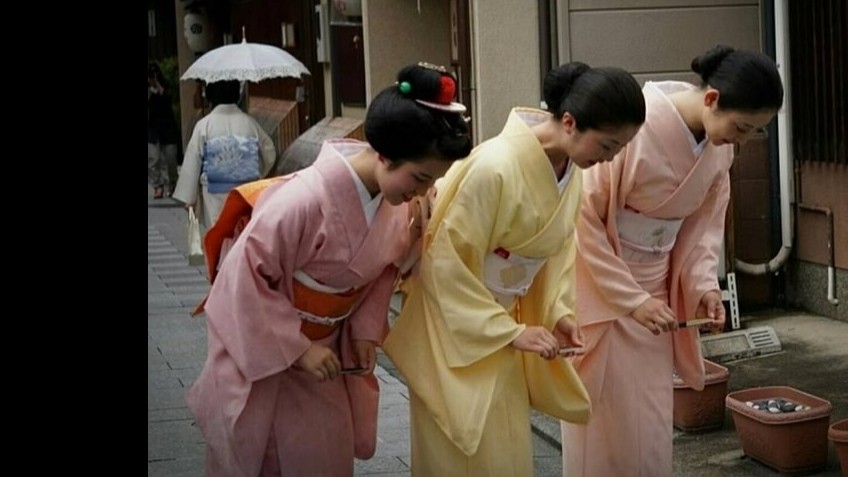日本のお辞儀について

About Japan's bowing culture

About Japan's bowing culture
世界の文化には多くのユニークな特徴がありますが、その中でも日本の「お辞儀(おじぎ)」は特に興味深い文化的な習慣です

While the world has many different cultures with unique characteristics, Japan's cultural custom of bowing is of particularly deep interest.

While the world has many different cultures with unique characteristics, Japan's cultural custom of bowing is of particularly deep interest.
お辞儀は、感謝や謝罪、挨拶など、さまざまな場面で使われる日本独自の礼儀です

Bowing is a Japanese etiquette, and is used in many situations, like expressing gratitude, as an apology, or as a greeting.

Bowing is a Japanese etiquette, and is used in many situations, like expressing gratitude, as an apology, or as a greeting.
日本では、お辞儀をすることが相手への敬意を表す重要な方法とされています

In Japan, to bow is an extremely important way of showing respect to another person.

In Japan, to bow is an extremely important way of showing respect to another person.
お辞儀の角度やタイミングは、相手との関係や状況によって異なります

The angle and timing of the bow reflects the varying relationships and state of affairs with others.

The angle and timing of the bow reflects the varying relationships and state of affairs with others.
例えば、ビジネスの場面では、深いお辞儀をして敬意を示すことが求められます

For example, in a business situation, a deep bow indicates respect

For example, in a business situation, a deep bow indicates respect
一方、日常的な挨拶では軽いお辞儀をすることが一般的です

On the other hand, for an everyday greeting a light bow is typical.

On the other hand, for an everyday greeting a light bow is typical.
お辞儀は単なる礼儀作法ではなく、相手との信頼関係を築くための重要な手段でもあります

A bow is not just a simple way of showing manners, it is also an important method in building up a trustful relationship with another.

A bow is not just a simple way of showing manners, it is also an important method in building up a trustful relationship with another.
日本人は、言葉だけではなく、態度や身振りで気持ちを伝えることを大切にしています

For Japanese people, it's not just about the words you use, but it is also your gestures and attitude that is important for conveying feelings.

For Japanese people, it's not just about the words you use, but it is also your gestures and attitude that is important for conveying feelings.
例えば、感謝の気持ちを表すために、お辞儀をしながら「ありがとうございます」と言うことがよくあります

For example, to be able to express a feeling of gratitude, while bowing it is best to say 'thank you'.

For example, to be able to express a feeling of gratitude, while bowing it is best to say 'thank you'.
このように、日本の文化では、言葉と行動が密接に結びついており、相手を尊重する姿勢が強調されています

In this way, within Japanese culture, action and words are closely connected and the posture you use when giving respect to someone is of emphasis.

In this way, within Japanese culture, action and words are closely connected and the posture you use when giving respect to someone is of emphasis.
世界にはさまざまな文化がありますが、日本のお辞儀のように、他者を敬う方法を持つことは、国や地域に関係なく重要な価値観です

Even though there are many kinds of cultures in the world, there are no countries or areas that have similarly related values of having a method to show respect to another like Japan's bowing culture.

Even though there are many kinds of cultures in the world, there are no countries or areas that have similarly related values of having a method to show respect to another like Japan's bowing culture.
このような文化を理解することで、国際的なコミュニケーションがよりスムーズに進むでしょう

Perhaps if we can fully understand such cultures, international communication should become smoother.

Perhaps if we can fully understand such cultures, international communication should become smoother.
